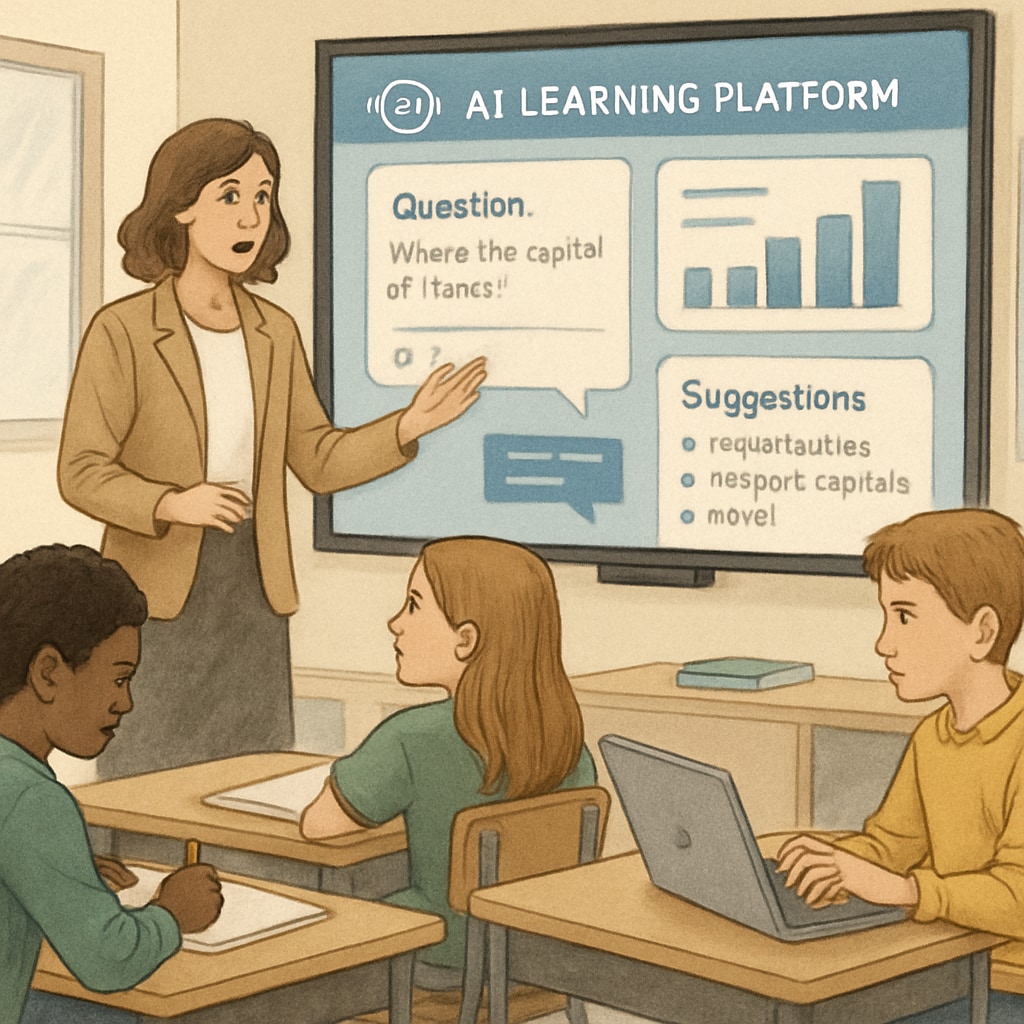As artificial intelligence (AI) continues to advance, its impact on higher education and career prospects has become a significant topic of discussion. The rapid evolution of AI technologies presents both challenges and opportunities, particularly for K12 education systems. Educators, parents, and policymakers are now tasked with preparing students for a future where traditional career paths may be disrupted. This article explores how K12 education can transform to meet the demands of the AI era and alleviate concerns about AI replacing human jobs.
The Challenges of AI for K12 Education
AI’s integration into various industries has sparked concerns about job displacement and the relevance of traditional educational models. Many tasks that were once considered uniquely human are now being automated. For example, AI algorithms are excelling in areas such as data analysis, customer service, and even creative fields like content generation. This raises the question: how can K12 education prepare students for a world where job roles are constantly evolving?
One of the biggest challenges lies in the outdated curriculum. Many schools still focus on rote memorization and standardized testing, which may not align with the skills required in an AI-driven workforce. According to a report on the future of work, critical thinking, creativity, and emotional intelligence are becoming increasingly valuable, yet these skills are often underemphasized in traditional K12 education.

Opportunities for Reshaping K12 Education
While the rise of AI poses challenges, it also offers opportunities to rethink and innovate within K12 education. Schools can leverage AI tools to provide personalized learning experiences, helping students identify their strengths and interests. For instance, adaptive learning platforms powered by AI can adjust the pace and content of lessons based on individual student performance, ensuring a more tailored and effective educational experience.
In addition, K12 education can place a greater emphasis on teaching “future-proof” skills. These include:
- Problem-Solving: Encouraging students to approach complex problems with innovative solutions.
- Collaboration: Promoting teamwork skills that are essential in dynamic work environments.
- Digital Literacy: Ensuring students are comfortable using and understanding AI tools and technologies.
By focusing on these areas, schools can better equip students to adapt to changing job markets and technological advancements.

Addressing Job Market Fears
One of the most pressing concerns for parents and students is the fear of job displacement due to AI. While it is true that some roles will become obsolete, new opportunities will also emerge. According to Britannica, AI is expected to create jobs in fields such as AI ethics, data science, and robotics engineering—roles that require a blend of technical skills and human creativity.
To address these concerns, K12 education can play a proactive role by exposing students to diverse career options early on. Career exploration programs, internships, and workshops can help students understand the evolving job market and identify fields where human skills are indispensable. Moreover, fostering a growth mindset can empower students to view challenges as opportunities for learning and innovation.
Conclusion: Preparing for an Uncertain Future
The AI era is reshaping the landscape of higher education and career prospects, making it essential for K12 education to evolve. By focusing on critical thinking, creativity, and adaptability, schools can prepare students to navigate an uncertain future with confidence. Additionally, integrating AI tools into classrooms can enhance learning experiences and provide valuable insights into career pathways. While the challenges are significant, the opportunities for transformation are equally profound.
Ultimately, the goal of K12 education in the AI age should be to empower students not just to survive but to thrive in a rapidly changing world. By equipping them with the right skills and mindset, we can ensure that the next generation is ready to embrace the future with resilience and optimism.


